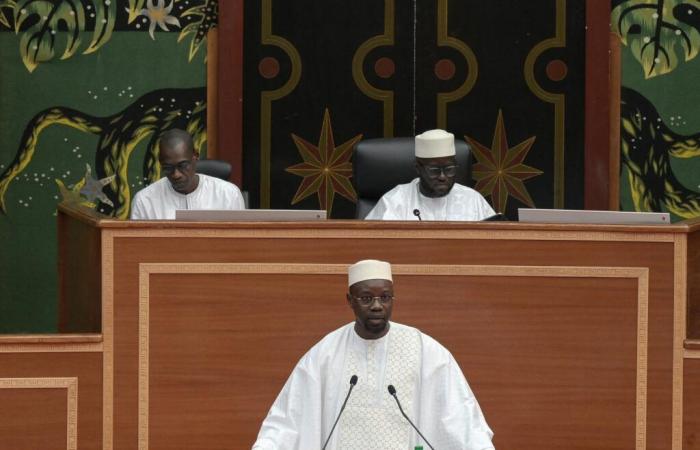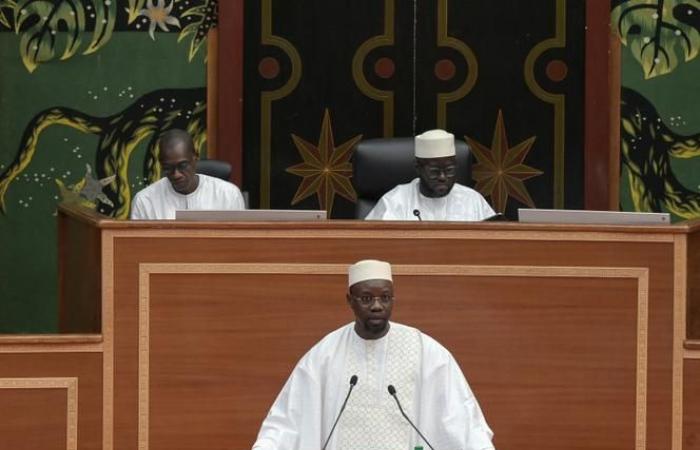After several postponements, Ousmane Sonko was expected at the podium. Nearly nine months after his appointment, the Senegalese Prime Minister finally delivered his general policy declaration, Friday, December 27, before an almost entire National Assembly.
Dressed in a large white boubou, he promised the launch of a vast program of economic reforms to restore the country and the repeal of the amnesty law. Voted on March 6, before the presidential election, at the initiative of former President Macky Sall (2012-2024), it covers crimes and offenses committed during political protests between 2021 and 2024, the repression of which provoked around sixty deaths, hundreds of arbitrary detentions and acts of torture, according to Amnesty International.
“This is not a witch hunt, much less revenge. It is simply a question of justice, the pillar without which no social peace can be guaranteed”assured the head of government, beneficiary of this measure which allowed the current president, Bassirou Diomaye Faye, and himself to leave prison ten days before the March 24 election. On Tuesday, the new authorities took a first step towards calling into question this amnesty by including in the 2025 finance bill the credits intended for victims of the pre-electoral period.
You have 70.88% of this article left to read. The rest is reserved for subscribers.
Senegal







